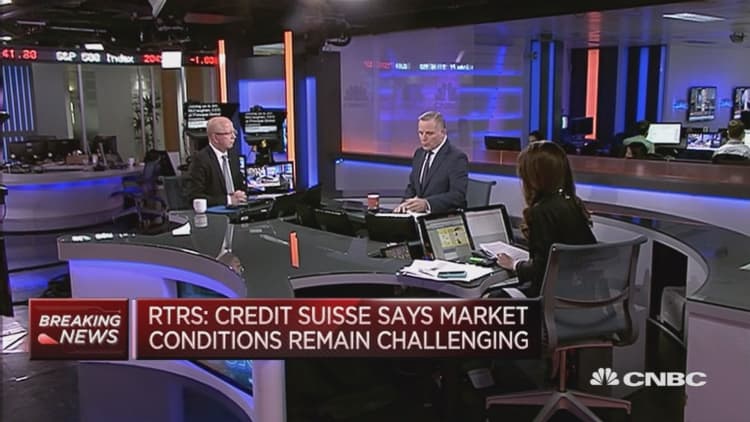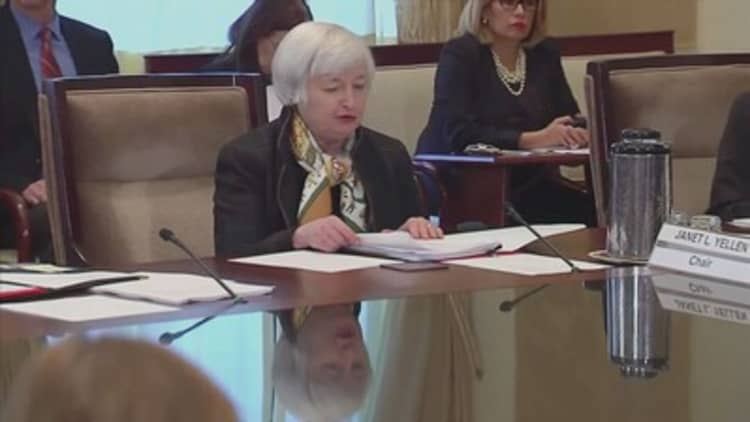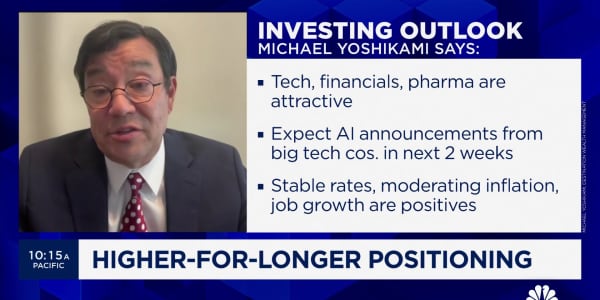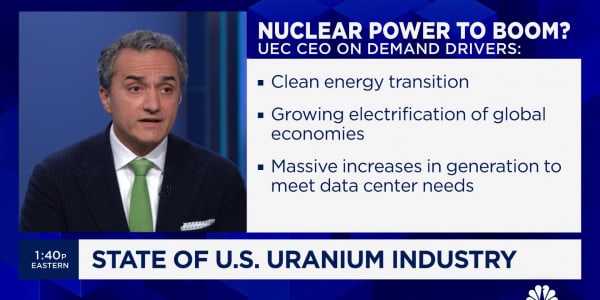Top Wall Street executives have a big challenge in this year's regulatory exams, which banks are expected to complete in coming days.
For the first time, they have to factor in the possibility that the Fed reverses course and embraces negative interest rates — which will pile new stress onto banks in the regulators' list of Systemically Important Financial Institutions, or SIFIs. But the hypothetical scenarios, if they ever merge with reality, won't just create headaches on Wall Street. Banks may have no choice but to pass some of the effects of negative interest rates on to their customers, from large corporate accounts to consumers on Main Street.
Michael Alix, financial services advisory risk leader at PricewaterhouseCoopers and former New York Fed senior vice president, said one option for banks in a NIRP environment includes passing losses of negative interest to some customers, but not to others. This means corporate accounts would potentially be subject to negative interest rates, which would cost depositors, but not individual customers, whose balances are far smaller.
"The bank may very well treat consumers differently," Alix said. "Different banks may have different strategies dealing with those clients."
The rationale is simple, said Deloitte & Touche financial services advisory leader Alok Sinha. While some consumers are expected to bleed accounts dry and stash cash under a mattress, rather than pay a nominal fee in world devoid of savings interest, corporate clients cannot do this with their cash. However, if it's a move the industry makes in lockstep — similar to how quickly Wall Street banks moved to increase the prime rate after the Federal Reserve's December 2015 rate hike — it would likely be easier for even their biggest customers to digest.
But Main Street consumers wouldn't be exempt from the impacts of interest rates hypothetically going negative.

"The cost will likely be passed onto consumers, in one form or another," said Heath Tarbert, head of law firm Allen & Overy's U.S. bank regulatory group in Washington, D.C.
While it's not expected to come in the form of fees on savings accounts — which Tarbert and Sinha agreed would likely generate bad press and negative sentiment directed at Wall Street as well as the central bank — there are other opportunities for banks to increase fees on products like mortgage origination or credit cards.
Read MoreFed Chair Yellen has a mini-revolt on her hands
Banks have little clarity on what to expect from negative rates because it has never happened in the U.S., and it has barely begun in other parts of the world, where central banks began tweaking interest rates into negative territory to offset various economic threats. Still, industry consultants say even a limited history of how Japan's or Switzerland's economies respond to negative rates will provide a window for Wall Street banks into how the U.S. might react.
In the years following the global financial crisis as regulators sought to create a way to determine how well SIFIs could respond to a crisis, stress tests created an annual window into leading financial services firms' fiscal health. Only this year did regulators tell banks to prepare for the possibility that they might reverse course after their December rate hike, and contemplate how Wall Street would deal with interest rates going below zero into negative territory.

There remains, however limited, a chance that Wall Street would experience benefits from negative rates. Deloitte's Sinha points out that bank holdings like Treasury and fixed income securities could appreciate, which would generate at least short-term gains.
And, there remains the likely possibility that the Fed will continue down its path of rate hikes. After the March decision not to raise interest rates, several Federal Open Market Committee members publicly opined that the central bank needs to continue on its tightening path as early as next month. The central bank's forecasts currently predict interest rates rising, not falling.
Read MoreFed's Bullard: Low rates may be causing low inflation
This would be music to the ears of virtually every Wall Street banker, as well as their advisors.
"The financial system wasn't created for negative interest rates," said Kramer Levin leveraged finance partner Richard Farley. "You are asking the machine to do things it wasn't designed to do."






